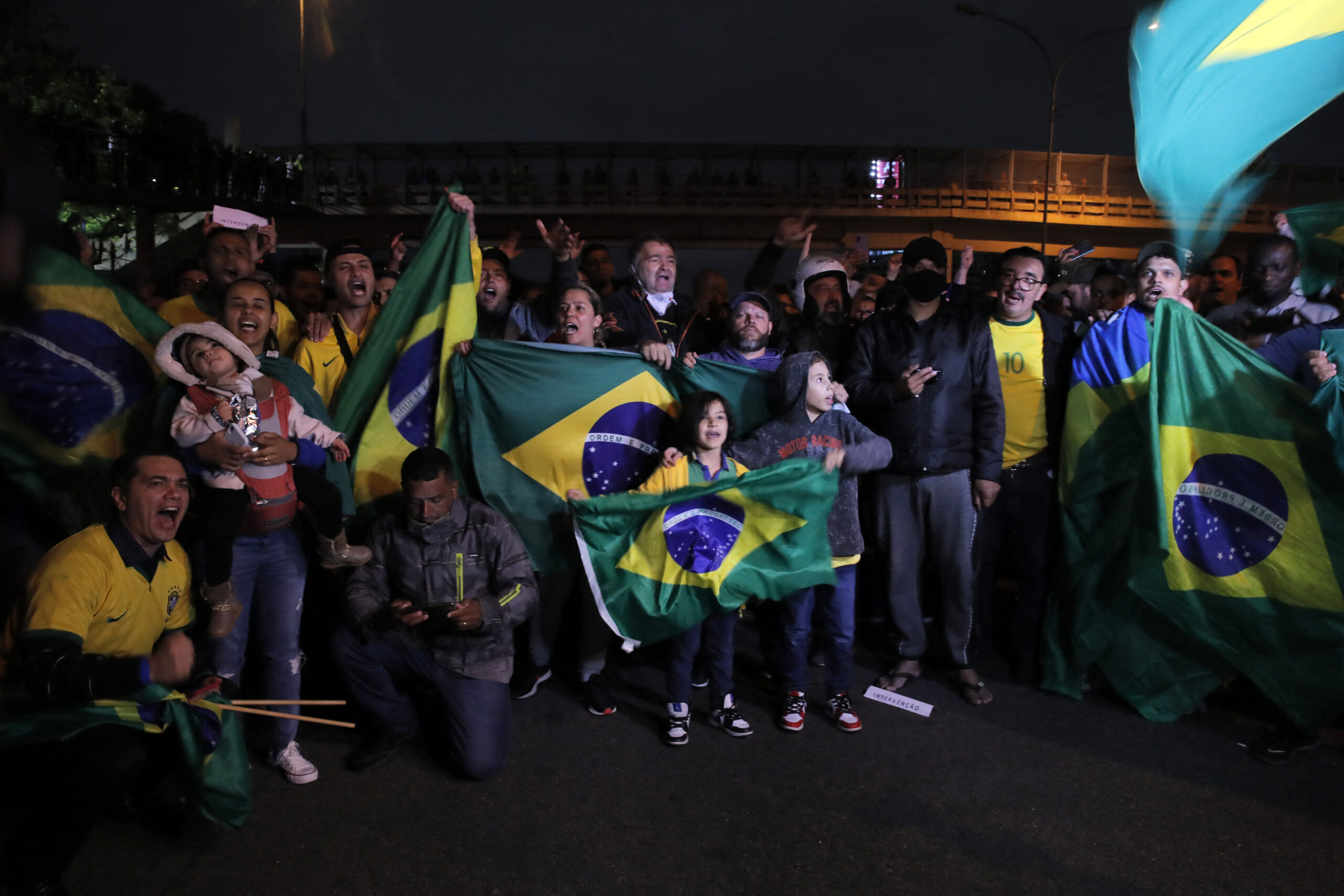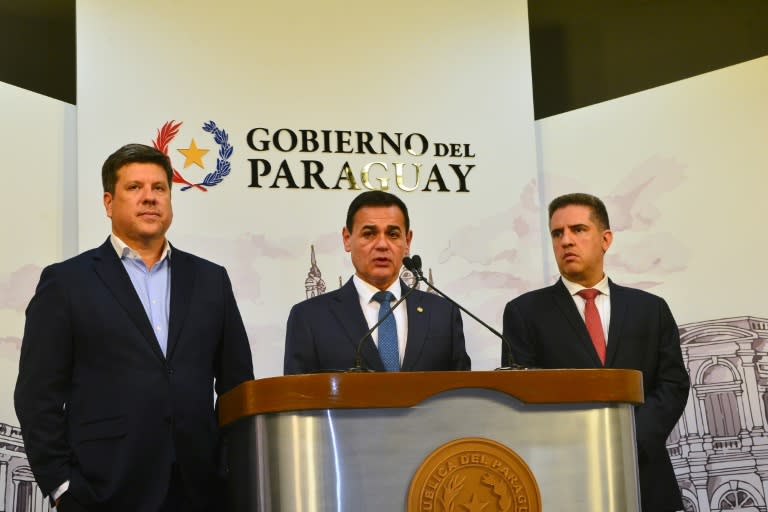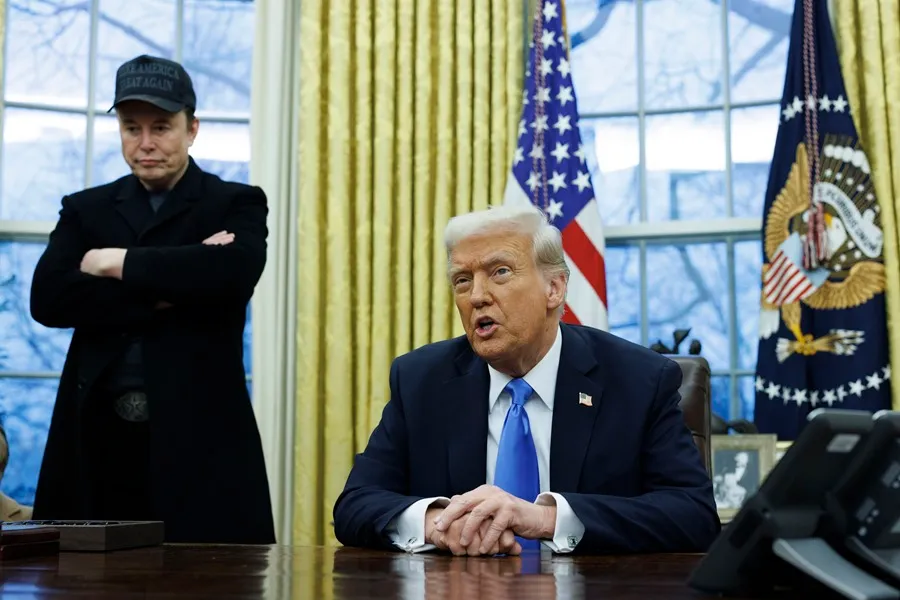International
Protests wane in Brazil, but diehards stand by Bolsonaro

| By AFP | Luján Scarpinelli y Florian Plaucheur en Rio de Janeiro |
Protests in deeply polarized Brazil have dwindled since presidential elections nearly two weeks ago but some hard-core supporters of President Jair Bolsonaro remain in the streets.
A retired metalworker, Jose Carlos Flamino, stood at his encampment on Friday near a military barracks in Sao Paulo and vowed to remain “as long as is necessary.”
He still doesn’t accept that Luiz Inacio Lula da Silva, a leftist former president who squeaked out a 50.9 percent victory over Bolsonaro’s 49.1 percent in the October 30 vote, won fairly and squarely.
“The balloting that gave victory to Lula is not reliable,” said Flamino, 53, demanding the military overturn the vote.
He’s not alone. Other diehard Bolsonaro supporters are camped out with him at the Sao Paulo garrison and at military barracks across Brazil.
Bolsonaro, a retired army captain, “was a victim of an injustice but we are fighting here for the fatherland,” said Aguinaldo Coimbro, a 52-year-old market analyst, a Brazilian flag draped over his shoulders.
About 100 people with him outside the Sao Paulo military base chanted, “SOS, armed forces,” and called on the military to “save Brazil.”
Most wore green and yellow clothing, the colors of the national flag that has turned into a symbol for Bolsonaro followers.
“Brazil didn’t elect anyone. The people don’t accept this. We don’t want to become Venezuela. Our freedom doesn’t have a price,” said Lena Pasqualini, 62, a jewelry saleswoman resting at a support center with donated food for the protesters.
At a temporary encampment of protesters next to the central Duque de Caxias garrison in Rio de Janeiro, around 100 people remained on Friday morning, down from several thousand in the days after the October 30 runoff election.
Even as demonstrations melt to only a few dozen people, protesters insist they represent multitudes.
The election “was stolen, and that’s why all of Brazil is in the streets,” said Paulo Campelo, 70, a retired soldier.
“We want the army to eliminate those bastards who want to authenticate the fraudulent elections,” Campelo added.
Lula: ‘One wins, one loses’
The Armed Forces said Friday in a statement that “the solution to possible controversies… must make use of the legal instruments of the democratic rule of law.”
Protesters assert that a “fraud” was perpetrated with the electronic ballot box system, used in Brazil since 1996, and questioned without proof by Bolsonaro.
Numerous international observers and a report by the Armed Forces themselves released on Wednesday fully dispute that allegation.
Lula on Thursday appealed to the “minority in the streets” to go home.
“Democracy is that, one wins, one loses,” the president-elect said. “How many times have I cried because I lost?”
Bolsonaro, who has not openly acknowledged his defeat and has practically disappeared from public life for more than a week, asked his supporters to take down hundreds of roadblocks they threw up after the vote, but supported protests elsewhere.
On Friday Brazilian roads were completely back to normal, the Federal Highway Police told AFP.
International
Paraguay summons Brazilian ambassador over Itaipú espionage scandal

Paraguay summoned the Brazilian ambassador in Asunción on Tuesday to demand “explanations” and called its own representative in Brasília for consultations following Brazil’s acknowledgment of an espionage operation. The Brazilian government, led by President Luiz Inácio Lula da Silva, attributed the operation to the previous administration.
The surveillance effort aimed to uncover Paraguay’s position in now-suspended negotiations with Brazil regarding the pricing of electricity from the binational Itaipú hydroelectric plant, according to reports in the Brazilian press.
The Brazilian government “categorically denied any involvement in the intelligence operation,” stating in a Foreign Ministry communiqué on Monday that the espionage was carried out under former President Jair Bolsonaro’s administration (2019-2023).
“The operation was authorized by the previous government in June 2022 and was annulled by the interim director of the (state intelligence agency) ABIN on March 27, 2023, as soon as the current administration became aware of it,” Brazil’s government asserted.
Paraguay’s Foreign Minister Rubén Ramírez announced that Brazilian Ambassador José Antonio Marcondes de Carvalho was summoned “to provide detailed explanations” regarding the operation. Additionally, Paraguay recalled its diplomatic representative in Brasília “to report on aspects related to the intelligence activity conducted by Brazil regarding Paraguay’s government affairs.”
International
Elon Musk to step down as government advisor, per Trump insiders

President Donald Trump has informed his inner circle that Elon Musk will be stepping down from his role as a government advisor, according to a report by Politico today.
Citing three individuals close to Trump, Politico states that the president is pleased with Musk’s leadership at the Department of Government Efficiency (DOGE), where he has implemented significant budget cuts. However, both have agreed that it is time for Musk to return to his businesses and support Trump from a different position outside the government.
A senior administration official told Politico that Musk will likely maintain an informal advisory role and continue to be an occasional visitor to the White House. Another source warned that anyone thinking Musk will completely disappear from Trump’s circle is “deluding themselves.”
According to the sources, this transition is expected to coincide with the end of Musk’s tenure as a “special government employee,” a temporary status that exempts him from certain ethics and conflict-of-interest regulations. This 130-day period is set to expire in late May or early June.
International
Milei vows to make Argentina so strong that Falkland Islanders “choose” to join

Argentine President Javier Milei reaffirmed his country’s claim over the Falkland Islands (known as the Islas Malvinas in Argentina) and praised the role of the nation’s armed forces during a ceremony marking the “Veterans and Fallen Soldiers of the Malvinas War Day,” commemorating 43 years since the 1982 conflict with the United Kingdom.
Argentina continues to assert sovereignty over the islands, arguing that Britain unlawfully seized them in 1833.
“If sovereignty over the Malvinas is the issue, we have always made it clear that the most important vote is the one cast with one’s feet. We hope that one day, the Malvinas residents will choose to vote with their feet and join us,” Milei stated.
“That is why we aim to become a global power—so much so that they would prefer to be Argentine, making deterrence or persuasion unnecessary. This is why we have embarked on a path of liberation, working to make Argentina the freest country in the world and once again the nation with the highest GDP per capita on the planet,” he added.
-

 Central America3 days ago
Central America3 days agoU.S. Homeland Security Secretary urges Mexico to strengthen Guatemala border
-

 Central America3 days ago
Central America3 days agoPanama grants Martinelli 72-hour extension to travel to Nicaragua
-

 International2 days ago
International2 days agoParaguay summons Brazilian ambassador over Itaipú espionage scandal
-

 Central America4 days ago
Central America4 days agoPanama police clarifies that Interpol alert for Martinelli is still pending
-

 International3 days ago
International3 days agoTrump urges Putin to reach peace deal
-

 International4 days ago
International4 days agoDeportation flight lands in Venezuela; government denies criminal gang links
-

 Sports2 days ago
Sports2 days agoFilipe Luis debuts as coach in Copa Libertadores with Flamengo
-

 Central America2 days ago
Central America2 days agoGuatemalan police officer killed in mob riots over baby kidnapping
-

 International2 days ago
International2 days agoElon Musk to step down as government advisor, per Trump insiders
-

 Sports2 days ago
Sports2 days agoVenezuela investigates 18 baseball players seeking asylum in Spain
-

 International2 days ago
International2 days agoMilei vows to make Argentina so strong that Falkland Islanders “choose” to join
-

 International2 days ago
International2 days agoICE agent’s arrest of suspect sparks controversy in Boston
-

 International2 days ago
International2 days agoÓscar Arias: Trump’s trade policies are a step backward















